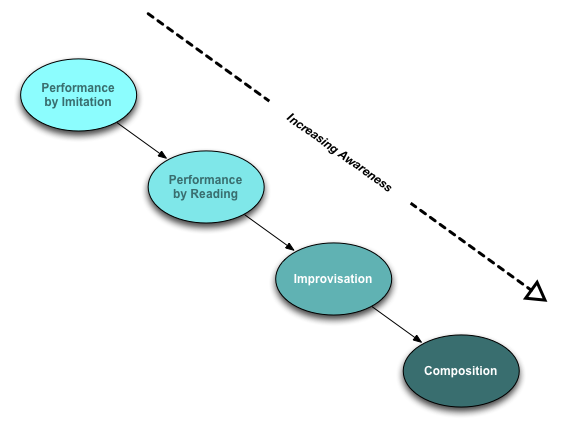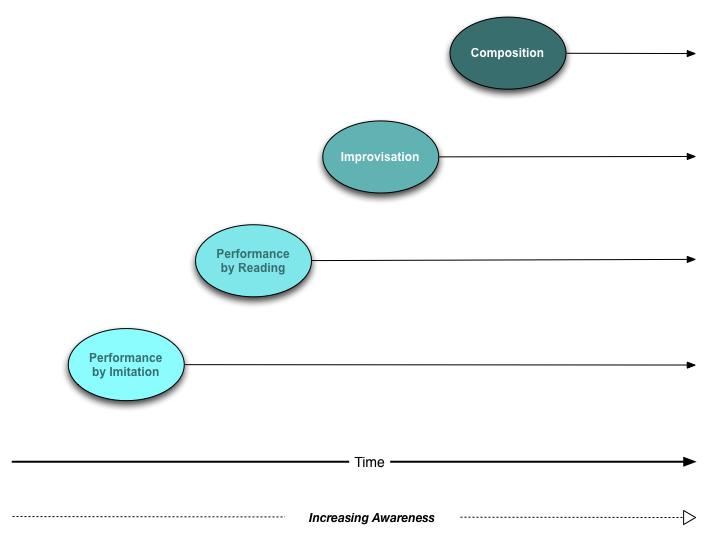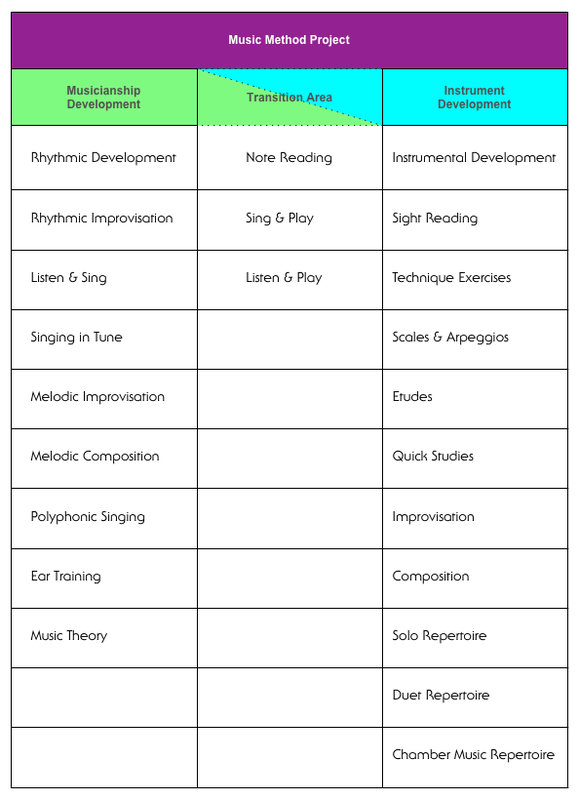Development Areas in MusMP
A comprehensive, gradual programme must consider all the possible sectors where skills and competence can be developed, hence the following principles arise and must be kept in consideration:
- Learning to play an instrument will concurrently involve and develop the person's cognitive, physical and cultural aspects.
- When planning a programme there are two spheres to be considered: learning process and maintenance.
- There are four performing/creative stages which will contribute to the learning process and should always coexist:
|
As previously asserted the four stages should always coexist. Furthermore, each one must not be considered as preparatory to any consecutive other one.
Some musicians favour one kind of performance in respect to the other; this is very likely the result of a habit, often originated by a prevention of the opportunity to deal with performances of another sort.
Developing skills in all kind of performances simultaneously will result in a profound and dense ability, premise for an efficient attitude while improvising and composing.
Some musicians favour one kind of performance in respect to the other; this is very likely the result of a habit, often originated by a prevention of the opportunity to deal with performances of another sort.
Developing skills in all kind of performances simultaneously will result in a profound and dense ability, premise for an efficient attitude while improvising and composing.
As a consequence, IMP and MMP are divided into several development areas, each of which can be introduced and begin at different times, according to the teacher's esteem.
|
Development Areas in IMP are so defined:
Development Areas in MMP are so defined:
|
Activities from some development areas are better achieved when performed by a group of students and others individually. Generally speaking, MMP's activities are more effective when performed in groups while IMP's activities are better dealt individually. It must be said though that there are many different ways to approach this pedagogical question.
Some development areas, however, are transitional between MMP and IMP and provide a link thus connecting these two important sections.
In the following table it can be seen how three areas previously included in IMP (instrumental development) have a transitional nature; the activities within these areas will focus simultaneously on musicianship and instrumental skills.
Some development areas, however, are transitional between MMP and IMP and provide a link thus connecting these two important sections.
In the following table it can be seen how three areas previously included in IMP (instrumental development) have a transitional nature; the activities within these areas will focus simultaneously on musicianship and instrumental skills.


